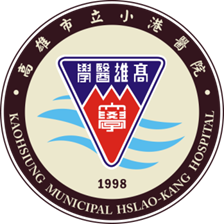
Kaohsiung Medical University
Green Education Ranking
#847
About Kaohsiung Medical University
Kaohsiung Medical University (originally known as Kaohsiung Medical College) was formally established in 1954. Apart from being the first private medical university in the university has also become an important cradle for highly-skilled physicians and medical-related specialists. Kaohsiung Medical University was a center of both medical care and the study of local tropical medicine in the early days. The colleges set aside its tropical disease research mission after the World Health Organization announced that was no longer a tropical disease endemic area, and turned its full attention to the steadily evolving areas of basic medical science and clinical medical research. The university has also continued to strengthen its medical services. Kaohsiung Medical University therefore has laid a solid foundation as southern’s leading medical institution. After Kaohsiung Medical College became a university in the summer of 1999, it seized this opportunity to move faster and further and attain to the highest standards in teaching, research and service. The shared vision of everyone at Kaohsiung Medical University is to make the university a modern, forward-looking institution striving for excellence in both academics and medical care. Kaohsiung Medical University has all the strengths of a well-established university. There is a wide range of medical related courses, and the facilities both for basic and clinical research are sufficient and of a good quality. The University is located in city center of Kaohsiung, the second biggest city in , which has all the attractions and excitement of city life.
About World Green University Ranking
World
Green University Ranking 2024 is a
scholarly acknowledgment of educational
institutions standing at the forefront of
Education for Sustainable Development (ESD) and
leading the Green Education Transformation
(Education 6.0).
World Green University Ranking classifies
universities based on the six pillars of the
Holistic Green Education Framework, including
leadership governance, curriculum, innovation,
facilities, human capital, and community
partnerships.
The methodology employed in our Green Education Ranking is designed relying on the six pillars of the Holistic Green Education Framework. Each pillar contributes to the institution’s overall score, with a carefully assigned weight reflecting its significance in fostering sustainability. The total weight of the six pillars collectively amounts to 100%, signifying a balanced evaluation across critical dimensions of Green Education. Within each pillar, various standards are carefully assessed, with weights ranging between 1 and 2, emphasizing the varying importance of each criterion. This nuanced approach ensures a holistic evaluation and offers an insightful measure of universities commitment to Green Education Transformation (Education 6.0).
| # | Six Pillars of Green Education Framework (6Gs). | Weight |
|---|---|---|
| 1 | Green Educational Leadership | 14% |
| 2 | Green Curriculum | 17% |
| 3 | Green Innovation and Research | 19% |
| 4 | Green Facilities | 15% |
| 5 | Green Human Capital | 19% |
| 6 | Green Communities | 16% |
| Total | 100% |

